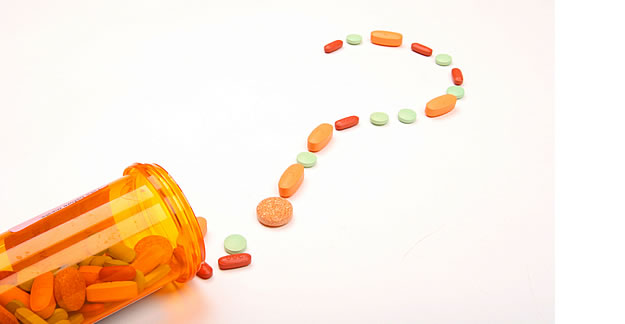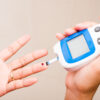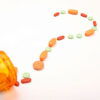There’s been gridlock in recent years surrounding the regulation of dietary supplements. Should the FDA focus on whether these vitamins, minerals and herbal extracts actually do what they claim — or leave that concern be for now and instead take important steps to improve their safety?
Option 2 is the solution proposed by a former principal deputy commissioner of the FDA, Joshua M. Sharfstein, MD, associate dean for public health practice and training at the Johns Hopkins Bloomberg School of Public Health, and Akshay Kapoor, MSPH, in a recent paper.
Why the standstill in keeping supplements safe — free of pharmaceuticals, manufactured safely and containing only the stated ingredients?
There is an ongoing dispute over whether the products work, according to Dr. Sharfstein and Kapoor in their article Breaking the gridlock: Regulation of dietary supplements in the United States, published in Drug Testing and Analysis. Manufacturers and many consumers think these supplements work, while many public health officials and doctors believe they don’t. Calling a truce on these questions of efficacy, Dr. Sharfstein and Kapoor argue, can bring people together to improve safety.
In a news release, Dr. Sharfstein says that many manufacturers would likely support stronger safety controls if they were not tied to greater scrutiny of claims about the products. These perspectives open a door to compromise that advances safety and protects public health, Dr. Sharfstein and Kapoor reason.
“The key equation in drug regulation is benefit versus risk. That is, do the potential benefits from using the drug outweigh the potential risks?” asks Dr. Sharfstein. “This framework, however, has led to gridlock for dietary supplements. An alternative framework is access with safety. That is, can we find a way ensure that dietary supplements are safe for consumers to take?”
This begs the question: If the FDA can figure out how to exclude unsafe supplements, can the agency then concentrate on efficacy of safe supplements?
How Important is Efficacy?
Pharmaceutical drugs are subject to strict clinical trials that need to show evidence efficacy (and safety) before the FDA gives its approval for marketing of the prescription medication to doctors and patients. Unlike drugs, dietary supplements do not require pre-market review or approval by the FDA. While the supplement company is responsible for having evidence that their products are safe and the label claims are truthful and not misleading, they do not have to provide that evidence to the FDA before the product is marketed, according to the National Institutes of Health (NIH).
What’s interesting is how consumers see this. It’s a good bet that if we knew pharmaceuticals weren’t rigorously studied and FDA cleared, we’d be more than wary. But supplements? Not so much. Surveys have shown that while Americans want to be assured of supplements’ safety, we’d rather make our own decisions about whether they are effective. And we often think we know that they are safe: The vast majority of American adults (85%) say they’re confident in the safety, quality and effectiveness of dietary supplements, according to the 2013 Council for Responsible Nutrition (CRN) Consumer Survey on Dietary Supplements.
The NIH says that roughly 100 million Americans purchase supplements each year, from calcium for osteoporosis and multivitamins for general health to supplements that tout benefits for sexual dysfunction, joint health and weight loss. US sales of dietary supplements reached an estimated $36.7 billion last year.
But the FDA has limited oversight of this industry. The FDA’s authority over dietary supplements is limited by federal law and has left the agency unable to protect consumers effectively, Dr. Sharfstein says.
The FDA also has limited capabilities when it comes to overseeing manufacturing standards for supplements. There are by most estimates at least 15,000 domestic and international manufacturers of supplements sold in the United States, with most of the raw materials originating overseas. Across all of these manufacturers, FDA conducts just 400 inspections of their facilities a year.
What is the risk of taking a supplement that is unsafe or tainted with ingredients that are not on the label? A recent study in the New England Journal of Medicine estimated 23,000 ER visits in the United States every year can be attributed to adverse events related to dietary supplements.
The NIH estimates that exposures to supplements such as vitamins, herbs, protein powders, and botanicals accounted for more than 100,000 calls to US poison control centers in 2013. Of these calls, more than 8,000 people were reportedly treated in health care facilities. More than 1,000 cases were reported to poison-control centers as having moderate to severe outcomes. This did not include electrolyte and mineral supplements, which accounted for another 2,500 people treated in health facilities, with 350 moderate to severe reactions and 2 deaths reported to poison control centers.
These statistics make a good case for the proposal that Dr. Sharfstein and Kapoor are suggesting, especially from a public health perspective. No one wants emergencies to occur thanks to supplements that are mislabeled or just plain fake.
But How Effective Are They?
Whether or not a supplement works as advertised also matters, or it should, of course. Take vitamin D, which is associated with bone strength and is also linked to more serious health risks such as coronary artery disease, heart attacks and strokes. However, the efficacy level for this vitamin has apparently been revised. New research presented at 2015 American Heart Association Scientific Session showed a significant change in the measurement of vitamin D levels considered normal for heart health. Although vitamin D levels above 30 nanograms per milliliter were traditionally considered to be normal, more recently, researchers at the Intermountain Medical Center Heart Institute in Salt Lake City have found that patients are fine from a heart standpoint, and may need no further treatment, if their vitamin D level is anywhere above 15 nanograms per milliliter.
In my mind, the jury is still out on efficacy of supplements, so I am cautious about taking them. But the real danger is whether they are safe, because if they’re not, well, efficacy hardly matters, does it? So I agree that safety should be a primary filter for the FDA. And I hope that evaluation for efficacy isn’t far behind.
For more information, see MedShadow.org’s What’s In My Supplement?






